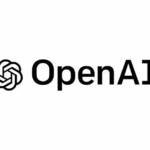Microsoft is gearing up to launch a new suite of autonomous artificial intelligence agents next month to bolster its portfolio against rivals like Salesforce. This move comes as the tech giant aims to enhance its offerings in the rapidly evolving AI landscape, where companies are under pressure to demonstrate the value of their substantial investments in artificial intelligence.
Starting in November, Microsoft will allow businesses to create their own AI agents using Copilot Studio, a platform designed for customizing and building AI assistants. These agents are capable of performing tasks with minimal human oversight. Microsoft describes these agents as “apps for an AI-driven world,” capable of handling client inquiries, identifying sales leads, and managing inventory.
At a recent event in London, Microsoft showcased its plans to roll out these autonomous agents, which had previously been available only in private preview. The public preview will enable a broader range of organizations to develop their own AI agents. In addition to this, Microsoft will introduce ten new ready-to-use agents within its Dynamics 365 suite, which includes applications for enterprise resource planning and customer relationship management.
Features and Capabilities of AI Agents
The new AI agents will be available across various business functions, including sales, service, finance, and supply chain operations. For example, a Sales Qualification Agent will help prioritize leads, while a Financial Reconciliation Agent will automate data preparation for financial reporting. Other agents will focus on customer service, automating case management and updating knowledge bases.
Jared Spataro, Microsoft’s corporate vice president of modern work and business applications, highlighted the potential of these agents during the event. He demonstrated an AI agent developed by McKinsey & Co., which was able to parse an email, check its history, and identify the appropriate consultant for follow-up tasks. Spataro noted that this technology could reduce lead times by as much as 90%, showcasing the efficiency gains that businesses could achieve.
According to Microsoft, Copilot Studio is designed to be user-friendly, requiring little to no programming knowledge. This accessibility is expected to give more organizations the ability to leverage AI technology without needing extensive technical expertise.
Competitive Landscape
The introduction of these autonomous agents comes at a time when competition in the AI sector is heating up. Salesforce recently unveiled its own AI tools, known as Agentforce, which allow businesses to create customizable AI agents. Salesforce’s CEO, Marc Benioff, has been vocal in his criticism of Microsoft’s Copilot technology, suggesting that it does not adequately meet the needs of enterprise customers and may expose their data to security risks.
The rivalry between Microsoft and Salesforce has been characterized by both collaboration and competition over the years. While they have partnered on certain initiatives, they have also competed fiercely in various markets. The launch of autonomous AI agents by both companies reflects a broader industry trend to move beyond simple assistant roles for AI, enabling these technologies to take on more complex tasks autonomously.
Microsoft’s push into AI is part of a larger strategy to drive growth across its business segments, including GitHub, Windows, and Microsoft 365. The company reported that its Dynamics products and cloud services generated approximately $6.5 billion in revenue for the fiscal year ending June 30, 2024, marking steady growth from previous years. However, this revenue still represents a small portion of Microsoft’s overall annual revenue, which exceeds $245 billion.
Future Developments
As Microsoft prepares to launch its new AI agents, it is also addressing the concerns surrounding the real-world adoption of its Copilot technology. Recent research from Gartner indicated that many organizations have not advanced their Copilot initiatives beyond the pilot stage. This has raised questions about the pace of AI adoption and the effectiveness of these tools in real-world applications.
In addition to its AI agent rollout, Microsoft has secured a five-year agreement with the U.K. government to provide public sector organizations access to its AI tools. This partnership will allow public entities to utilize Microsoft 365 productivity tools, the Azure cloud platform, and Microsoft 365 Copilot, further expanding the reach of Microsoft’s AI capabilities.
(Photo by BoliviaInteligente on Unsplash)




